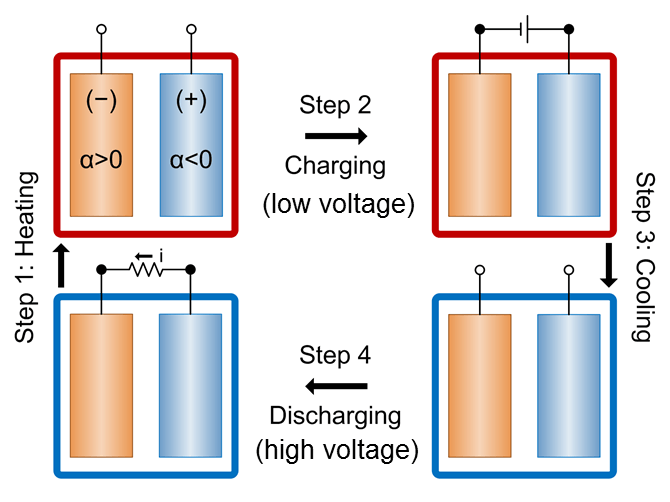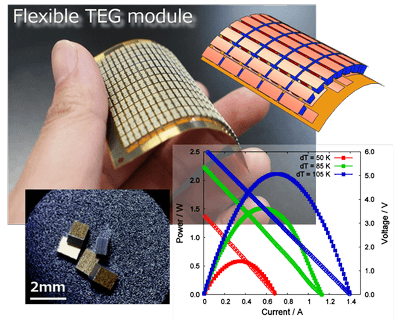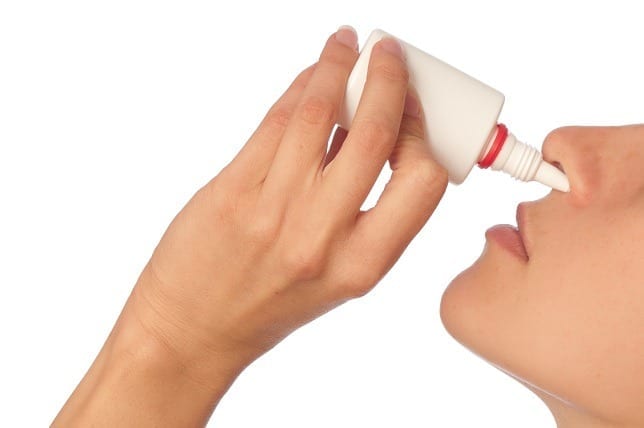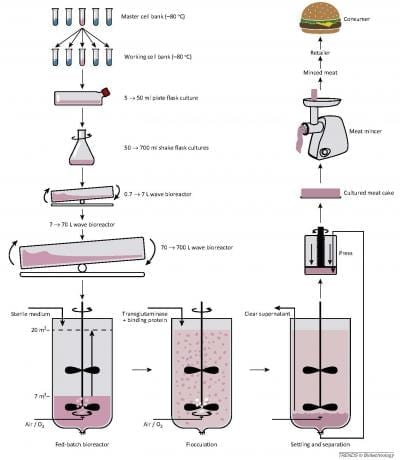
Electrochemical approach has potential to efficiently turn low-grade heat to electricity.
Vast amounts of excess heat are generated by industrial processes and by electric power plants; researchers around the world have spent decades seeking ways to harness some of this wasted energy. Most such efforts have focused on thermoelectric devices, solid-state materials that can produce electricity from a temperature gradient, but the efficiency of such devices is limited by the availability of materials.
Now researchers at MIT and Stanford University have found a new alternative for low-temperature waste-heat conversion into electricity — that is, in cases where temperature differences are less than 100 degrees Celsius.
The system can efficiently harness even relatively small temperature differences, such as a 50 C difference.
“One-third of all energy consumption in the United States ends up as low-grade heat.”
Read more . . .
The Latest on: Waste heat
[google_news title=”” keyword=”Waste heat” num_posts=”10″ blurb_length=”0″ show_thumb=”left”]
via Google News
The Latest on: Waste heat
- Using Industrial Waste to Fight Pollution in Brazilon April 30, 2024 at 3:36 am
Biogas production involves extracting energy from filth, from the most disgusting environmental pollution, and at the same time avoiding the worsening of the global climate crisis ...
- Orient Cement commissions waste heat recovery system at Chittapur planton April 30, 2024 at 3:08 am
Overall, gross power generation capacity of WHRS, after the commissioning of 2nd phase is 10.1 MW.
- Gazans struggle with heat, garbage, insect swarmson April 29, 2024 at 4:53 am
As garbage piles up and the heat rises in war-torn Gaza, flies and mosquitoes proliferate in crowded Rafah city and life becomes even more grim for displaced people living in tents. Daily tasks such ...
- Waste not, want not: How methane biogases can help us reach our climate goalson April 28, 2024 at 5:00 am
How can the U.S. meet its 30×30 methane goal? Tapping America’s massive organic waste streams as a renewable energy resource.
- Are Heat Pumps the Future of Residential and Commercial Heating?on April 25, 2024 at 2:00 pm
Heat pumps are gaining popularity as an eco-friendly alternative to gas boilers, with governments and companies investing in the technology to support decarbonization efforts.
- How Does an Incinerator Toilet Work? Replace Flushing With Burning Your Wasteon April 25, 2024 at 7:57 am
An incinerator toilet uses electricity or gas to burn your waste after you flush, and requires no sewage system. Here’s how it works.
- Edinburgh University to heat buildings using computer server waste warmth in £2.1m piloton April 24, 2024 at 7:42 am
Heat from one of Edinburgh University's large server rooms is to be used to keep the university’s buildings warm, under a £2.1m decarbonisation scheme.
- Harnessing heat: UD, AES Ohio, Tallgrass sign pact to power UD campuson April 23, 2024 at 2:56 am
Kanin Energy, with whom Tallgrass has collaborated on the system, says it specializes in turning industrial waste heat into clean electricity, boosting energy efficiency. Under the agreement, AES Ohio ...
- Bill Nye gives tips to reduce plastic wasteon April 22, 2024 at 3:36 pm
The theme of Earth Day 2024 is plant vs. plastics. Science educator Bill Nye details steps to reduce plastic waste and help the planet.
- First of its Kind Partnership Delivers a Waste Heat to Power Project That Will Reduce the University of Dayton’s Carbon Footprint by More Than 70%on April 22, 2024 at 3:23 pm
Tallgrass, the University of Dayton, and AES Ohio entered into an innovative long-term agreement that fosters the University of Dayton’s efforts to achieve their renewable energy goals. The new waste ...
via Bing News










